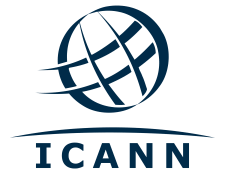ICANN
Stands for "Internet Corporation for Assigned Names and Numbers."
ICANN is a non-profit organization that coordinates and manages the Internet's domain name system (DNS) and the allocation of IP addresses. It was formed in 1998 and is registered and headquartered in California, operating as a partnership with representatives around the world. By ensuring that domain names and IP addresses are unique identifiers without duplication, ICANN helps keep the Internet stable and globally accessible.
ICANN performs several important functions that are required to keep the Internet running:
- Allocate IP Addresses: ICANN is the top authority for the distribution of IP addresses. Each IP address on the Internet must be unique — if two separate web servers had the same address, other computers would not know which server they were communicating with. Since there are more than 4 billion unique IPv4 addresses, ICANN cannot allocate each one individually; instead, they distribute blocks of addresses to regional Internet registries (RIRs), who then allocate smaller blocks to governments, organizations, and Internet service providers (ISPs).
- Manage the Domain Name System: ICANN delegates the management of each top-level domain (like .com and .biz) to a separate registry company. Each registry maintains a list of each domain within its TLD with its associated IP address, which other computers can use to look up a specific website's web server.
- Coordinate Root DNS Servers: There are a total of 13 root DNS servers, each run by a separate operator. ICANN works with all of them to coordinate their operations so that DNS information is always current.
- Develop Policy: ICANN works with other Internet technology stakeholders (including governments, businesses, and technical experts) to develop clear and fair policies for managing IP addresses, domain names, and other name-and-number resources.
It is important to note that ICANN has no control over content on the Internet or any particular website. Instead, their focus is solely on the management of Internet resources and the coordination of critical functions necessary to keep the Internet accessible.
NOTE: More information about ICANN's mission can be found at icann.org.
 Test Your Knowledge
Test Your Knowledge